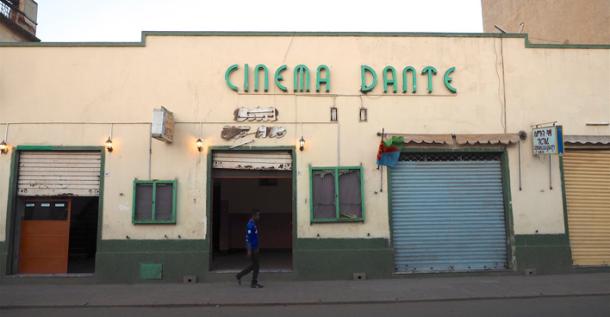News
The African Film Heritage Project at Cannes 2019

Since the early 1950s, African filmmakers have tried to offer an African vision of the history and culture of their continent, challenging the colonial narratives on African heritage and creativity. Musicians, writers, visual artists, dancers, playwrights, actors, etc. participated also in this struggle for dignity and freedom. At the Cannes Film Festival this year, the Pan African Federation of Filmmakers (FEPACI) presented the African Film Heritage Project (AFHP) from 19 to 21 May. The project is a partnership between FEPACI, Martin Scorsese’s The Film Foundation along with its affiliate archive, the Cineteca di Bologna, and UNESCO. The purpose is to restore and preserve 50 African films of historical, cultural and artistic significance.
From the beginning, African filmmakers, especially, used cinema as a means to raise awareness about the aspirations of their peoples and educate them to meet the challenges of independence. For UNESCO, many African classic films can be seen as educational/cultural production that was on one side sharing knowledge and on the other searing the message into the filmgoer’s emotional conscienceness.
Aware of the importance of the linkage between history and art, UNESCO decided to launch, in October 2015, an International Coalition of Artists for the General History of Africa. This Coalition works to promote to the general public, and especially young people, the key messages of the General History of Africa collection, which has been a 35-years in the making by UNESCO, and continues today. This huge body of knowledge expresses through the voices of Africans, the entire history of Africa: from the beginning of humanity to the challenges faced today by the Africans and their Diasporas around the world.
This inclusion at Cannes of the African Film Heritage Project was an opportunity to present and promote the AFHP with a specific focus on four major films by some of the most important filmmakers in the history of African cinema. These incliuded: Soleil Ô (1970) by Mauritanian director Med Hondo, Chronique des années de braise (1975) by Algerian director Mohammed Lakhdar-Hamina, La Femme au couteau (1969) by Ivoirian pioneer Timité Bassori and Muna Moto (1975) by Cameroonian maverick Jean-Pierre Dikongue-Pipa.
The Pan African Federation of Filmmakers (FEPACI) was founded in 1970 in Tunis by such film pioneers as Ousmane Sembène, Paulin Soumanou Vieyra and Tahar Cheriaa among others. FEPACI is the continental voice of filmmakers from various regions of Africa and the Diaspora. It works with its affiliate national bodies and membership to leverage policies and actions, programmes and projects for the development and enhancement of an enabling environment and infrastructure for all dimensions of filmmaking and the audiovisual media in Africa by Africans. The creation of the African Audiovisual and Cinema Commission of the African Union (AU) and the Cinematheque Africaine of Ouagadougou (CAO) are two landmark achievements by FEPACI among many.
Contact: Tabué Nguma, UNESCO, t.nguma@unesco.org







